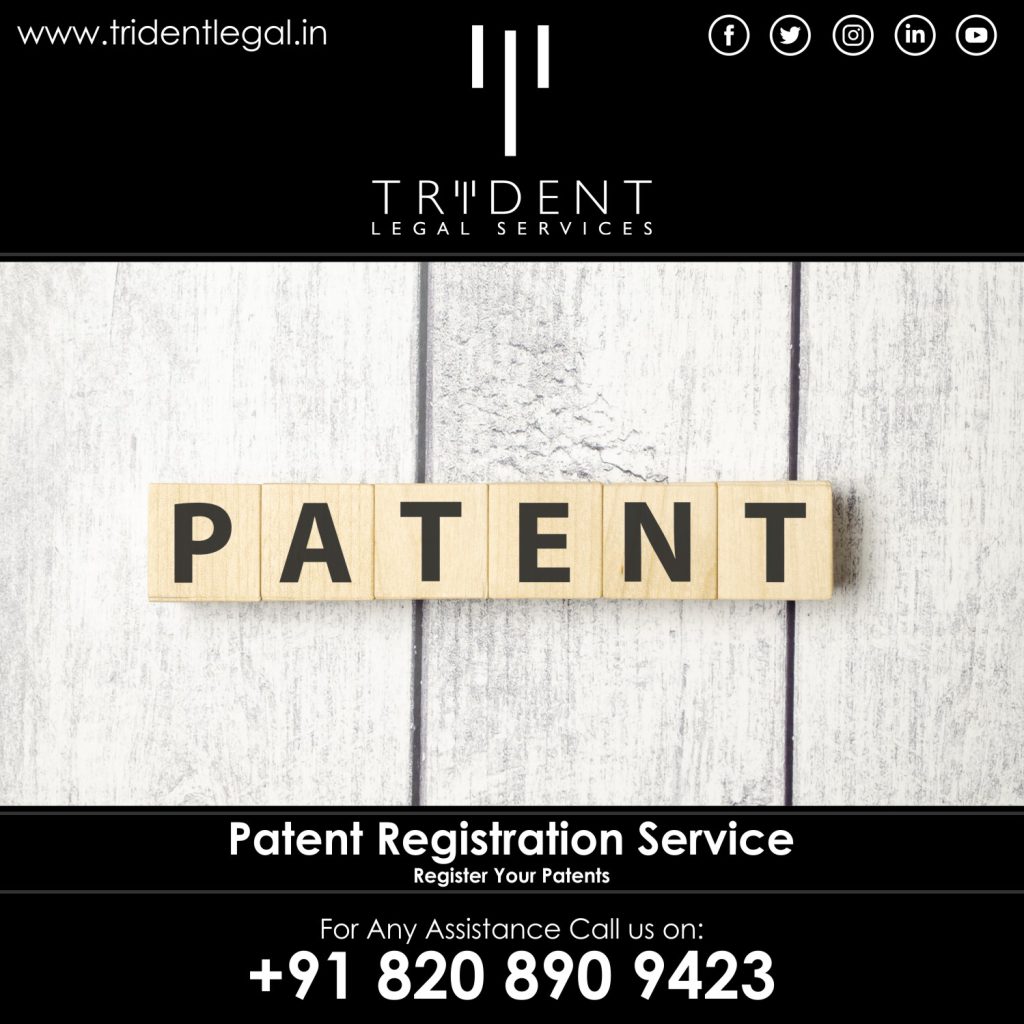Trademark Registration Service in Pune
- Guranted Expert Guidance
- Client-Centered Approach
Trustindex verifies that the original source of the review is Google. If you're looking for a competent and reliable Criminal Lawyer in Pune, Trident Legal is the way to go. They handled my case with utmost professionalism.Trustindex verifies that the original source of the review is Google. Best Legal services in PuneTrustindex verifies that the original source of the review is Google. gives good guidance in legal matters....Trustindex verifies that the original source of the review is Google. These lawyers are very good and help very wellTrustindex verifies that the original source of the review is Google. Provides best marriage registration service in pune
+91 820 890 9423
desk@tridentlegal.in
Flat No. 302, Kalunkhe Niwas, Khopade Nagar, Gujaewadi, Katraj, Pune - 411041
Trademark Registration Service in Pune
- 1 Trademark Registration Service in Pune
- 2 Trademark Registration Service in Pune:
- 3 What is Trademark?
- 4 About The Trade Marks Act 1999:
- 5 The Trade Marks Act 1999 defines a trademark as:
- 6 Trademark Registration Process:
- 7 Documents Required For Trademark Registration:
- 8 Latest News on Trademark Registration Law in India:
- 9 Law Amendment Related to Trademark Registration Law in India:
- 10 What Does a Trademark Lawyer in Pune Do?
- 11 Importance of Trademark Registration:
- 12 Why Should You Choose Trident Legal?
- 13 Services We Provide:
- 14 Conclusion
- 15 FREQUENTLY ASKED QUESTIONS (FAQ’S) FOR IP LITIGATION LAWYER IN PUNE
- 16 WHAT PEOPLE SAYS ABOUT US?
- 17 Read our latest News insights
Welcome to Trident Legal’s distinguished Trademark Registration Service in Pune, a pinnacle of expertise and guidance led solely by Advocate Nikhil Rathod. With an unwavering commitment to providing legal solutions tailored to your business needs, Advocate Nikhil Rathod stands as the sole legal luminary in our firm, uniquely positioned to guide you through the intricate landscape of trademark registration.
Securing your intellectual property is paramount in the bustling city of Pune, where businesses thrive and innovations flourish. As a solitary legal beacon, Advocate Nikhil Rathod brings his legal acumen and a deep understanding of the entrepreneurial spirit that defines Pune’s commercial environment. With the city’s dynamic markets and burgeoning startups, our services resonate with business owners and creative minds seeking to protect their brands.
Our Trademark Registration Service in Pune is a testament to Advocate Nikhil Rathod’s commitment to ensuring that businesses, regardless of size or industry, have the legal support they need to safeguard their brands. In a city that pulsates with entrepreneurial energy, our firm provides an indispensable bridge between the realm of business aspirations and the realm of legal protection.
Trademark registration isn’t just a legal process; it’s a strategic move that solidifies your brand’s identity in the marketplace. Advocate Nikhil Rathod’s comprehensive understanding of this process empowers businesses to navigate complex legal requirements confidently. A legacy is forged with every successful trademark registration, allowing businesses to claim their unique space in Pune’s competitive landscape.
As we delve into the intricacies of trademark registration in Pune, let’s explore the essence of trademarks, the significance of The Trade Marks Act 1999, the step-by-step registration process, and the documents needed to embark on this transformative journey. We’ll also keep a keen eye on the latest developments in trademark law and share insights on the role of a trademark lawyer in Pune. Moreover, we’ll address your pressing questions about trademark registration and explain why Trident Legal is your ideal partner in this voyage.
Trademark Registration Service in Pune:
Our specialized service in trademark registration encompasses the vibrant city of Pune, catering to the diverse needs of businesses, startups, entrepreneurs, and creators. We understand that your trademark is more than just a symbol; it represents your brand’s identity, values, and uniqueness. Our team, under the guidance of Advocate Nikhil Rathod, is dedicated to ensuring that your intellectual property rights are safeguarded in Pune’s dynamic business landscape.
What is Trademark?
A trademark is a visual representation that distinguishes your products or services from competitors. It is a powerful tool for establishing brand recognition and trust among consumers. In Pune’s competitive market, having a strong and legally protected trademark is essential to prevent unauthorized use and potential brand dilution.
About The Trade Marks Act 1999:
The Trade Marks Act 1999 is the principal legislation governing trademarks in India. It was enacted to consolidate and amend the law relating to trademarks. The Trade Marks Act 1999 provides for the registration of trademarks, the protection of registered trademarks, and the remedies available to trademark owners against trademark infringement.
The Trade Marks Act 1999 defines a trademark as:
“a mark used or proposed to be used to distinguish the goods or services of one person from those of others and includes a device, brand, heading, label, ticket, name, signature, word, numeral, shape of goods, packaging or combination of colours.”
The Trade Marks Act 1999 provides for registering trademarks regarding goods and services. A trademark can be registered for any goods or services as long as the trademark is not identical or deceptively similar to one already registered in India.
The Trade Marks Act 1999 also provides for the protection of registered trademarks. A registered trademark owner has the exclusive right to use the trademark with the goods and services listed in the registration. Suppose someone uses a registered trademark without the owner’s permission. In that case, the registered trademark owner can sue the infringer for trademark infringement.
The Trade Marks Act 1999 also remedies trademark owners against trademark infringement. The remedies available to trademark owners include the following:
- Injunction: An injunction is a court order that prevents someone from doing something. A trademark owner can obtain an injunction to prevent someone from using a trademark that infringes the owner’s trademark rights.
- Damages: A trademark owner can also sue for damages if someone infringes their trademark rights. Damages can be awarded to compensate the trademark owner for their losses due to the infringement.
- Account of profits: A trademark owner can also sue for an account of profits if someone infringes their trademark rights. An account of profits is a court order that requires the infringer to give the trademark owner all of the profits they have made due to the infringement.
The Trade Marks Act 1999 is a complex piece of legislation. Suppose you consider registering a trademark or believe your trademark rights have been infringed. In that case, you should consult with an attorney experienced in trademark law.
Trademark Registration Process:
The trademark registration process in India is governed by the Trade Marks Act 1999. The process can be divided into the following steps:
- Choose a trademark: The first step is to choose a trademark. A trademark can be a word, phrase, symbol, or design. It is essential to choose a distinctive trademark that is not likely to be confused with other trademarks that are already registered.
- Do a trademark search: Once you have chosen a trademark, you should search to ensure it is not already registered. You can do a trademark search online or through the Trademark Registry of India.
- File a trademark application: If your trademark is not already registered, you can file a trademark application with the Trademark Registry of India. The trademark application must include the following information:
- The trademark that you want to register
- The goods and services that you want to use the trademark for
- The name and address of the applicant
- The date on which you first used the trademark
- Examination of the trademark application: The Trademark Registry of India will examine your trademark application to ensure that it meets the requirements for registration. The Trademark Registry may also ask you to provide additional information or to amend your trademark application.
- Publication of the trademark application: If accepted, it will be published in the Trademark Journal. This gives other people the opportunity to object to your trademark registration.
- Opposition to the trademark registration: If someone objects to your trademark registration, you can respond to the objection. If the objection is upheld, your trademark registration will be refused.
- Registration of the trademark: If there are no objections to your trademark registration, it will be registered by the Trademark Registry of India. The registration will be valid for ten years and can be renewed for an additional 10-year period.
The trademark registration process can be complex and time-consuming. It is essential to consult with an attorney experienced in trademark law if you are considering registering a trademark.
Here are some of the documents required for trademark registration in India:
- Trademark application form: The trademark application form must be completed in English and must include the following information:
- The trademark that you want to register
- The goods and services that you want to use the trademark for
- The name and address of the applicant
- The date on which you first used the trademark
- Power of attorney: If you are filing the trademark application on behalf of another person, you will need to provide a power of attorney. A power of attorney must be signed by the person authorizing you to file the trademark application.
- Certified copy of the trademark registration certificate: If you are registering a trademark already registered in another country, you must provide a certified copy of the trademark registration certificate.
- Trademark search report: A trademark search report is a document that shows whether or not the trademark that you want to register is already registered in India. You can obtain a trademark search report from the Trademark Registry of India or a private trademark search firm.
- Applicant’s Identity Proof and Address Proof: This could be a passport, driving license, voter ID card, or any other government-issued ID card. You must also provide proof of address, such as a utility bill or bank statement.
Documents Required For Trademark Registration:
The documents required for trademark registration in India vary depending on the type of trademark that you are registering. However, some of the standard documents that are required include:
- Trademark application form: The trademark application form must be completed in English and must include the following information:
- The trademark that you want to register
- The goods and services that you want to use the trademark for
- The name and address of the applicant
- The date on which you first used the trademark
- Power of attorney: If you are filing the trademark application on behalf of another person, you will need to provide a power of attorney. A power of attorney must be signed by the person authorizing you to file the trademark application.
- Certified copy of the trademark registration certificate: If you are registering a trademark already registered in another country, you must provide a certified copy of the trademark registration certificate.
- Trademark search report: A trademark search report is a document that shows whether or not the trademark that you want to register is already registered in India. You can obtain a trademark search report from the Trademark Registry of India or a private trademark search firm.
- Applicant’s Identity Proof and Address Proof: This could be a passport, driving license, voter ID card, or any other government-issued ID card. You must also provide proof of address, such as a utility bill or bank statement.
Suppose you are registering a trademark that is a logo or design. In that case, you may also be required to provide a drawing of the logo or design.
The documents required for trademark registration can be submitted online or by post to the Trademark Registry of India. The trademark registration process can take several months to complete.
Here are some additional documents that may be required for trademark registration in India:
- Declaration of use: If you are registering a trademark for goods or services you are not yet using, you may be required to file a declaration of use. The declaration of use must state that you have a bona fide intention to use the trademark in the future.
- Statement of goods and services: The statement must list the goods and services you want to use the trademark for. The statement of goods and services must be clear and concise.
- Translation of documents: If you are filing a trademark application in a language other than English, you will need to provide translations of the documents into English. The translations must be certified by a translator who is fluent in both languages.
Latest News on Trademark Registration Law in India:
- Trademark Registry of India launches a new online portal for trademark registration: The Trademark Registry of India has launched a new online portal for trademark registration. The new portal is designed to make the trademark registration process more efficient and user-friendly.
- Supreme Court of India upholds trademark registration of “Google”: The Supreme Court of India has upheld the trademark registration of the word “Google”. The court held that the word mark “Google” is distinctive and that it is not likely to be confused with any other trademarks that are already registered.
- Delhi High Court grants interim injunction to prevent use of trademark “Flipkart”: The Delhi High Court has granted an interim injunction to prevent the use of the trademark “Flipkart”. The court held that the trademark “Flipkart” is distinctive and likely to be confused with the trademark “Flipkart”.
- Trademark Registry of India issues guidelines on trademark registration for cryptocurrencies: The Trademark Registry of India has issued guidelines for trademark registration. The guidelines state that cryptocurrencies must be registered as trademarks but must meet specific requirements.
- Trademark Registry of India issues guidelines on trademark registration for non-fungible tokens (NFTs): The Trademark Registry of India has issued guidelines on trademark registration for non-fungible tokens (NFTs). The guidelines state that NFTs can be registered as trademarks but must meet specific requirements.
Law Amendment Related to Trademark Registration Law in India:
- The Trade Marks Act, 1999 (Amendment) Act, 2010: This amendment act made several changes to the Trade Marks Act, 1999. The amendment act included provisions for registering trademarks for goods and services in the digital environment, and it also protected well-known trademarks.
- The Trademarks (Amendment) Rules, 2017: These rules made several changes to the Trademark Rules, 2002. The amendment rules included provisions for filing trademark applications online, and they also provided for the expedited registration of trademarks for certain goods and services.
- The Trademarks (Amendment) Act, 2020: This amendment act made several changes to the Trade Marks Act 1999. The amendment act included provisions for the registration of trademarks for geographical indications, and it also provided for the protection of trademarks against cybersquatting.
- The Trademarks (Amendment) Rules, 2021: These rules made several changes to the Trademark Rules, 2002. The amendment rules included provisions for filing trademark applications in Hindi, and they also provided for the electronic filing of trademark applications.
What Does a Trademark Lawyer in Pune Do?
Advocate Nikhil Rathod’s role extends beyond mere legal counsel. He collaborates with you to understand your brand, its aspirations, and how the trademark aligns with your business goals. This holistic approach contributes to a comprehensive trademark strategy.
Importance of Trademark Registration:
Trademark registration fortifies your brand’s foundation, providing legal protection against infringement. It fosters consumer trust, enhances brand value, and opens doors to potential business expansion. In Pune’s competitive market, this protection is invaluable.
Why Should You Choose Trident Legal?
Choosing Trident Legal means entrusting your trademark registration to an experienced and dedicated team led by Advocate Nikhil Rathod. Our personalized approach, attention to detail, and commitment to excellence set us apart in Pune’s legal landscape. With a strong focus on delivering value to clients, we ensure that your trademark registration journey is seamless, legally sound, and tailored to your needs.
Services We Provide:
Conclusion
At Trident Legal, we recognize your trademarks’ pivotal role in defining your brand’s identity. Advocate Nikhil Rathod’s expertise, combined with our meticulous approach, ensures that your trademark registration in Pune is a strategic move towards securing your brand’s future. Contact us today to embark on a journey that safeguards your intellectual property, reinforces consumer trust, and paves the way for business success.
Contact Details:
Address: Khopade Nagar, Katraj, Pune, 411041 |
Phone: +91-820-890-9423 |
Email: desk@tridentlegal.in
FREQUENTLY ASKED QUESTIONS (FAQ’S) FOR IP LITIGATION LAWYER IN PUNE
What is a trademark?
A trademark is a unique symbol, word, phrase, design, or a combination thereof that distinguishes the goods or services of one business from those of others. It helps in creating brand identity and prevents unauthorized use by competitors.
Why is trademark registration important?
Trademark registration provides legal protection and exclusive rights to the owner of the trademark. It prevents others from using a similar mark for similar goods/services, thus safeguarding your brand's reputation and value.
Who can apply for a trademark in Pune?
Any individual, business entity, or legal entity engaged in commercial activities can apply for a trademark in Pune, whether they are manufacturers, traders, service providers, or professionals.
How do I search for existing trademarks in Pune?
Before applying for a trademark, it's important to conduct a comprehensive search to ensure that a similar or identical trademark is not already registered. This can be done through the online trademark database provided by the Indian Trademark Office.
What is the process of trademark registration in Pune?
The process involves filing an application with the Trademark Office, followed by examination, publication, opposition (if any), and finally, registration. The entire process takes about 1 to 2 years on average, depending on the complexity and the workload of the office.
What goods or services can be covered under a trademark?
Trademarks can be registered for specific goods and/or services as per the International Nice Classification system. It's important to accurately describe the goods/services your trademark will be associated with during the application process.
What is the duration of trademark protection in Pune?
Once registered, a trademark is protected for a period of 10 years from the date of application. It can be renewed indefinitely every 10 years upon payment of the renewal fee.
Can I apply for a trademark on my own?
Yes, you can file a trademark application on your own. However, it's recommended to seek professional assistance from a trademark attorney or a legal expert to ensure that the application is properly drafted and complies with all legal requirements.
What is the cost of trademark registration in Pune?
The cost of trademark registration varies depending on factors such as the number of classes of goods/services, professional fees if you're using an attorney, and any potential oppositions or objections that might arise during the process.
What is the role of a trademark attorney in Pune?
A trademark attorney provides expert guidance throughout the registration process. They help in conducting a thorough search, drafting and filing the application, responding to any objections, and ensuring that the entire process runs smoothly.
WHAT PEOPLE SAYS ABOUT US?
I was really impressed with Trident Legal and Advocate Nikhil Rathod. Even though they just started,
Deepak Joshi
Trident Legal and Advocate Nikhil Rathod are really good at what they do. Even though they
Arjun Mehta
I had a great experience with Trident Legal and Advocate Nikhil Rathod. Even though they are
Preeti Mishra
Trident Legal, with Advocate Nikhil Rathod, is like a rising star in the legal world. I
Ritu Singh
I was lucky to work with Trident Legal and Advocate Nikhil Rathod. Even though they just
Prakash Gupta
Trident Legal and Advocate Nikhil Rathod are really amazing! They helped me with legal stuff and
Meera Patel
Trident Legal and Advocate Nikhil Rathod are like superheroes! They are really good at legal stuff
Rohit Verma
I wasn’t sure about Trident Legal because they are new, but they surprised me! Advocate Nikhil
Anjali Sharma
I had the honor of working with Trident Legal and Advocate Nikhil Rathod. They were really
Rakesh Kumar
Rakesh KumarTrident Legal, led by Advocate Nikhil Rathod, is like a superhero in the legal world. Even
Nisha Gupta











